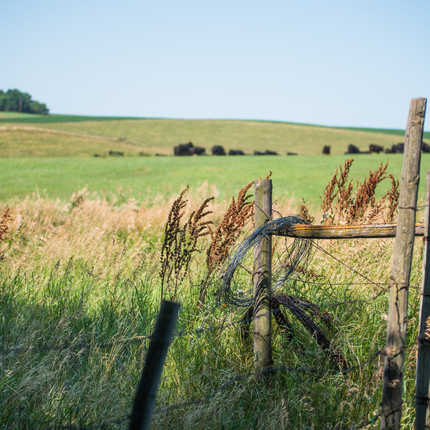The released draft of the Agriculture and Nutrition Act of 2018, commonly known as the farm bill, has several proposals of concern for rural America. The draft bill was released yesterday by the House Agriculture Committee. The current farm bill expires Sept. 30, 2018.
The House farm bill is a nonstarter. As drafted, it completely eliminates the popular Conservation Stewardship Program that currently protects 70 million acres nationwide. It wipes out funding for the Value-Added Producer Grant Program and the Rural Microentrepreneur Assistance Program, two programs that support new enterprise creation in rural America. And it fails to put any sort of cap on unlimited crop insurance subsidies for the largest farms.
Structural reforms of this nature, that put common-sense limits on subsidies to only the largest operations, are needed to level the playing field for all farmers. The House Agriculture Committee’s decision to ignore these needed changes indicates an unfortunate reluctance to do what is right for our small and mid-sized farmers.
The proposed elimination of the Conservation Stewardship Program wipes out the largest working lands conservation program in the U.S. The Conservation Stewardship Program offers farmers and ranchers who can demonstrate existing land stewardship efforts the opportunity to improve and expand them for their whole operation. The program emphasizes conservation practices that support natural resource concerns, such as soil erosion and water quality.
Terminating the Conservation Stewardship Program undermines farmers’ and ranchers’ abilities to implement conservation practices on their land. Hundreds of farmers from around the Midwest have shared with us how important Conservation Stewardship Program is to their operations and stewardship efforts. Ending the program, along with the more than $7 billion in proposed cuts to other working lands conservation programs, would strike a serious blow to farmers’ and ranchers’ abilities to better steward their soil and water.
Members of the House Agriculture Committee describe proposed changes to crop insurance as minor.
This is a missed opportunity to create a stronger connection between conservation and crop insurance. Offering higher subsidies for higher levels of stewardship would make crop insurance more accountable to taxpayers and reduce risks for farmers – these measures would go a long way toward creating further support for conservation.
The draft bill also proposes changes to several programs that support beginning farmers, rural development, value-added production, and rural entrepreneurs.
Seeing level funding in the bill for the Beginning Farmer and Rancher Development Program, the Outreach and Assistance for Socially Disadvantaged and Veteran Farmers and Ranchers Program, and the Conservation Reserve Program – Transition Incentive Program is encouraging. However, the bill eliminates mandatory funding for the Value-Added Producer Program and the Rural Microentrepreneur Assistance Program, which is a step towards disinvesting in rural small businesses. The similar decision to not renew organic cost-share program funding also undermines farmers’ and ranchers’ abilities to certify as organic and access the higher price points that organic products provide.
The House Agriculture Committee will revise this draft during a meeting called “markup,” announced by Rep. Mike Conaway (R-TX), chairman of the committee, set for 10 a.m. Eastern on Wednesday, April 18, 2018.
We hope the House of Representatives can make needed amendments to improve this bill, restore these valuable programs, and reach bipartisan agreement.





